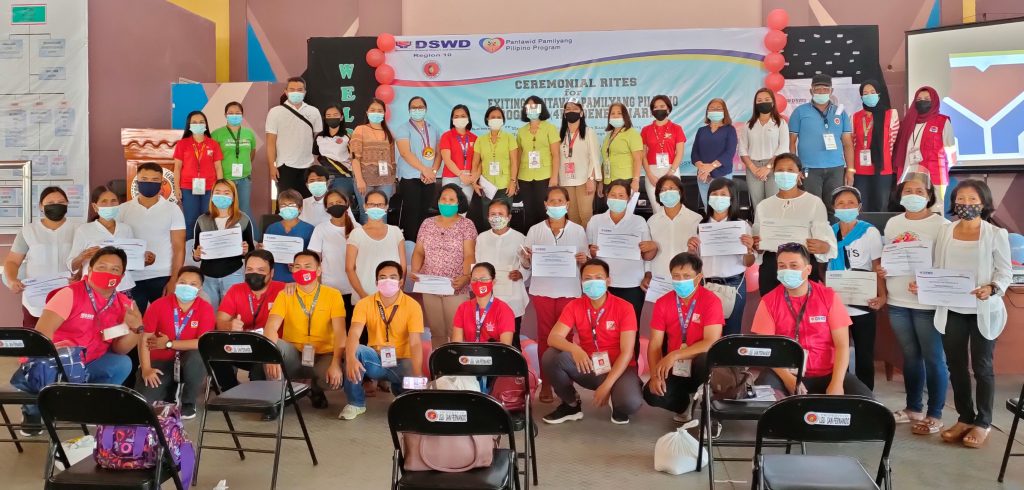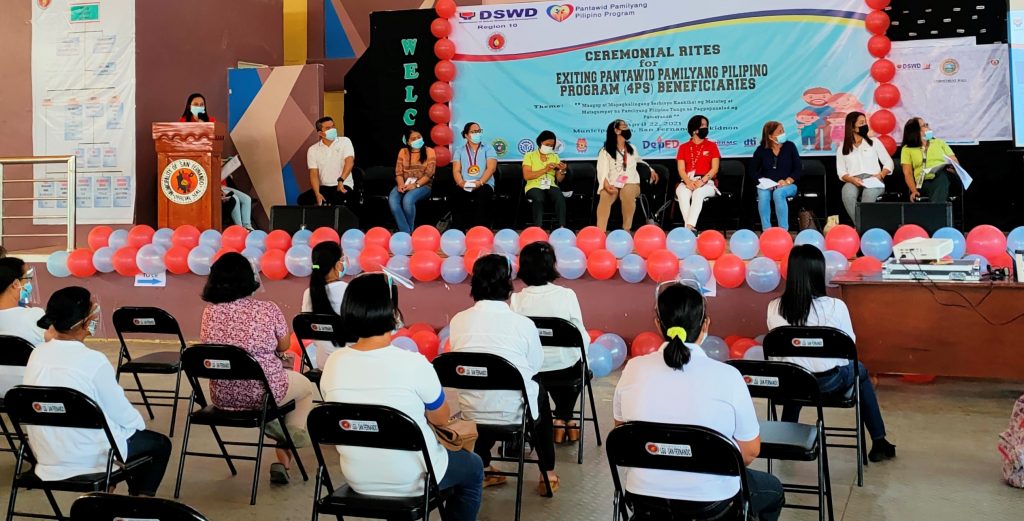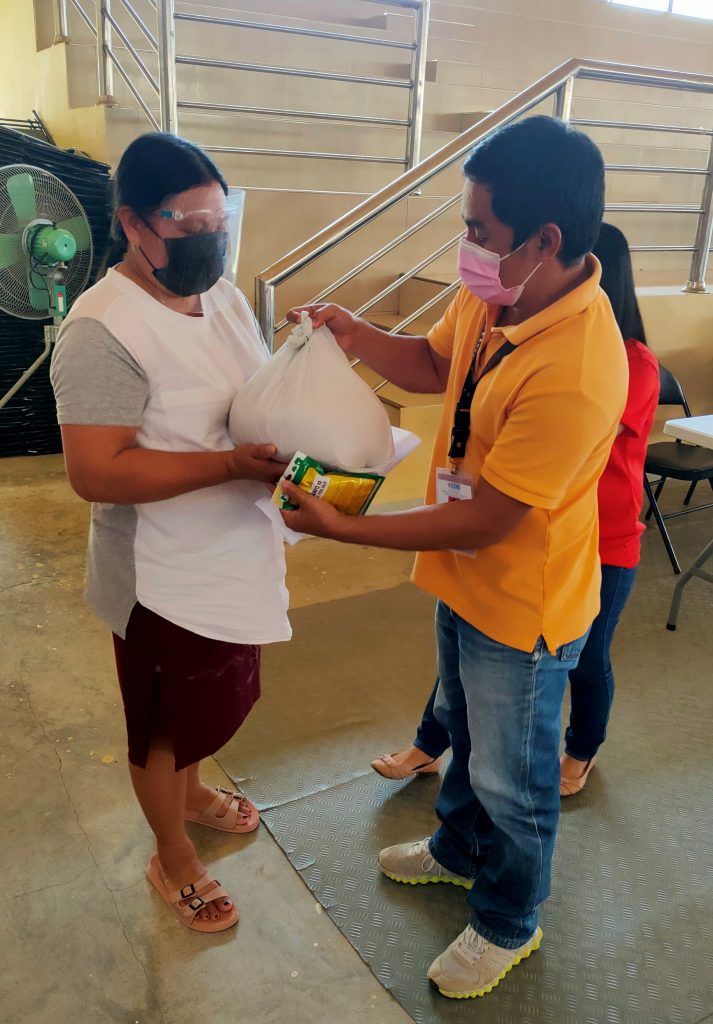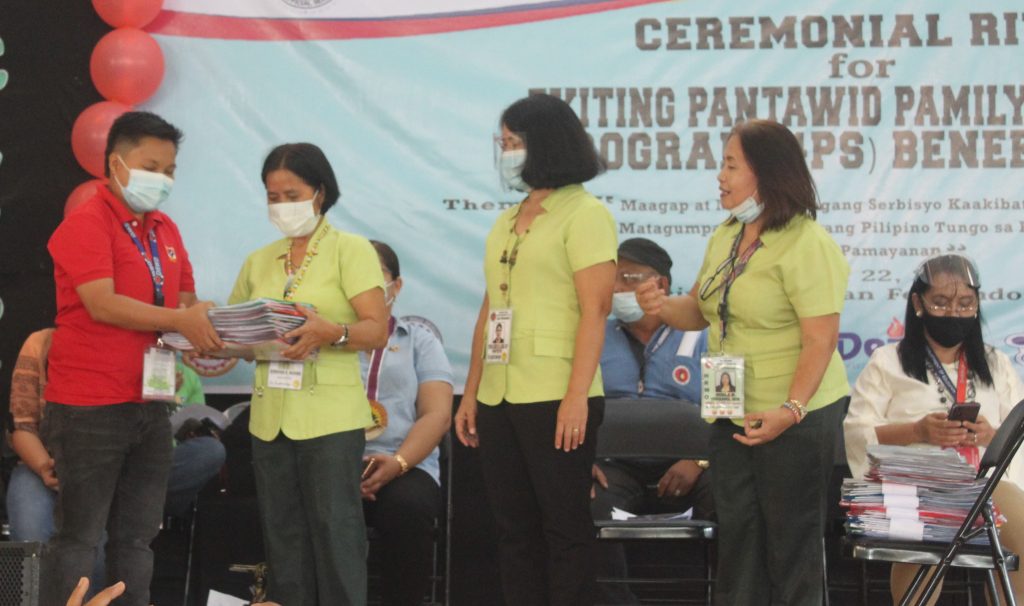
DSWD Field Office X workers formally turn over 105 exiting beneficiaries of 4Ps to the Local Government Unit of San Fernando, Bukidnon on April 22. The LGU will continue to monitor and assist the beneficiaries in the provision of support interventions as outlined in the approved sustainability plan prepared by the Municipal/City Social Welfare and Development Office.
10,203 household beneficiaries of Pantawid Pamilyang Pilipino Program (4Ps) is set to graduate from the program this year in Northern Mindanao.
Of the number, Bukidnon has 2,472 households, Camiguin, 161; Lanao del Norte, 3,146, Misamis Occidental, 1,795, and Misamis Oriental, 2,629.
Kenneth Haze S. Lustre, Regional Project Coordinator of 4Ps of DSWD Field Office X, said these families will be delisted from the program due to attrition or those whose households no longer have eligible children for monitoring.
The program has been implemented since 2008 in Northern Mindanao, with beneficiaries receiving the cash grants for more than 10 years, provided they have children from age zero to 18.
Lustre added that some of the exiting households have voluntarily waived because their financial status has improved.
“Majority of these households have improved well-being since the government has invested in their children’s education and health,” said Lustre.
She also hoped that even without the grant from 4Ps, the exiting beneficiaries will continue to live the values and practices learned from the program through the Family Development Session (FDS).
After graduation, beneficiaries will be turned over to the Local Government Units (LGU’s) for the aftercare services based on the Kilos-Unlad Framework.
Kilos Unlad is a social case management strategy that aims to guide the households in achieving improved well-being, stepping out of poverty, and employing individual/family cooperation.
The LGU’s will continue to monitor and even assist in the provision of support interventions as outline in the approved sustainability plan.
Turn-over of exiting 4Ps beneficiaries from DSWD Field Office X to the LGU’s will be from April to June this year in Northern Mindanao.
The agency has formally started turning-over of exiting beneficiaries to the LGU on April 22 where 105 grantees were handed to the San Fernando LGU of Bukidnon.
Momentarily, Northern Mindanao has 254,802 active 4Ps households.
Impact evaluation report
On the Impact Evaluation Report produced every three years by the agency and partner organizations World Bank, Australian Aid, and Asian Development Bank, it indicated the success of 4Ps in keeping Filipino children healthy and in school.
Some of the key findings of the study cited that the Pantawid Pamilya program encourages trial use of modern family planning methods, promotes facility-based deliveries and access to professional postnatal care, and improves children’s access to some key health care services.
Among Pantawid beneficiaries, the study said about nine in 10 households are covered by the PhilHealth insurance program.
It also mentioned that Pantawid Pamilya keeps older children in school and Pantawid children work seven days less in a month compared to non-Pantawid children.
It added that Pantawid Pamilya increases households’ investments in education, does not encourage dependency or spending more on vice goods, and allows parents to aspire for a better future for their children.
==





